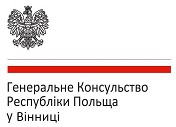Політичний відтінок сивини. Балканські партії пенсіонерів на європейському тлі
Ключові слова:
Balkan political scene, pensioners’ parties, elders, political gerontology, social benefitsАнотація
The study of political activity among the elderly has prompted some American researchers to take up research on “political gerontology” in the late 1970s. One of the effects of the increasing political activity of seniors, but also the growing number of 65+ voters was the emergence a new type of party that uniquely identified with senior citizens and in the wider sense ‒ the elderly, focusing both on demands typical for this electorate. The first party of its kind in Europe was the Italian Pensioners’ Party, founded in October 1987. The Balkan pensioners’ parties in the majority of cases were among the typical post-communist “demanding parties”, expressing the frustration of people, who lost social prestige and financial stability during the economic transformation. Some of them noted significant success by entering into the ruling coalitions (Serbia, Slovenia). Their successes generated the creation of new pensioners’ parties in Kosovo and Macedonia. The programs of Balkan pensioners’ parties are directed to the entire society, expressing sensitivity to the interests of excluding groups but it is hard to find visible references to elderly problems understood as a social and demographic challenge. The political activity of the Balkan “grey parties” does not seem as a form of elders’ emancipation but only as a defense of the pensions and social privileges inherited from the communist times.
##submission.downloads##
Опубліковано
Номер
Розділ
Ліцензія
Авторське право (c) 2014 Tadeusz Czekalski

Ця робота ліцензується відповідно до Creative Commons Attribution-NonCommercial 4.0 International License.
Автор, який подає матеріали до друку, зберігає за собою всі авторські права та надає відповідному виданню право першої публікації, дозволяючи розповсюджувати даний матеріал із зазначенням авторства та джерела первинної публікації, а також погоджується на розміщення її електронної версії на сайті Національної бібліотеки ім. В.І. Вернадського, в міжнародних базах даних CEJSH, Index Copernicus, POL-index, Polska Bibliografia Naukowa.

